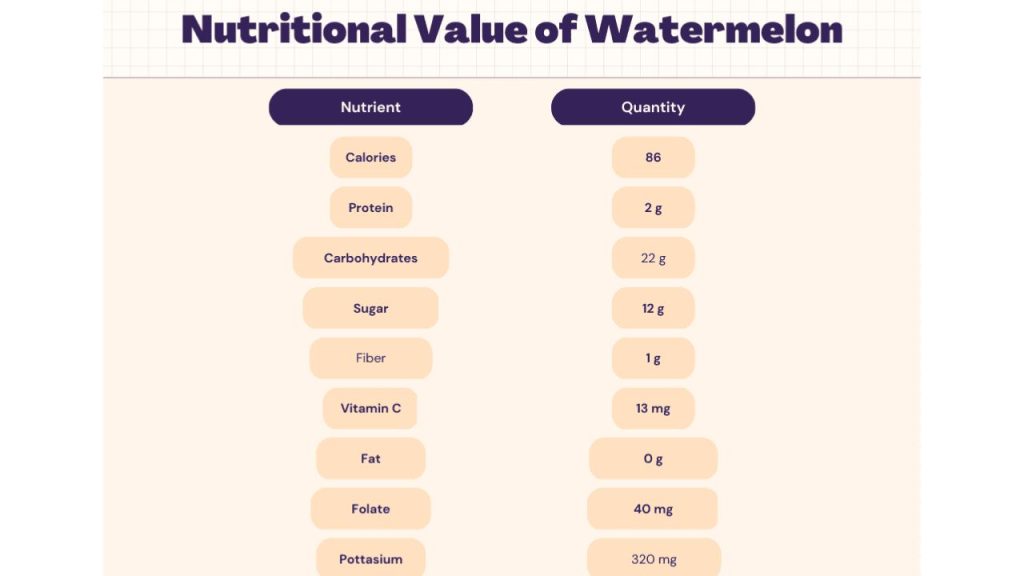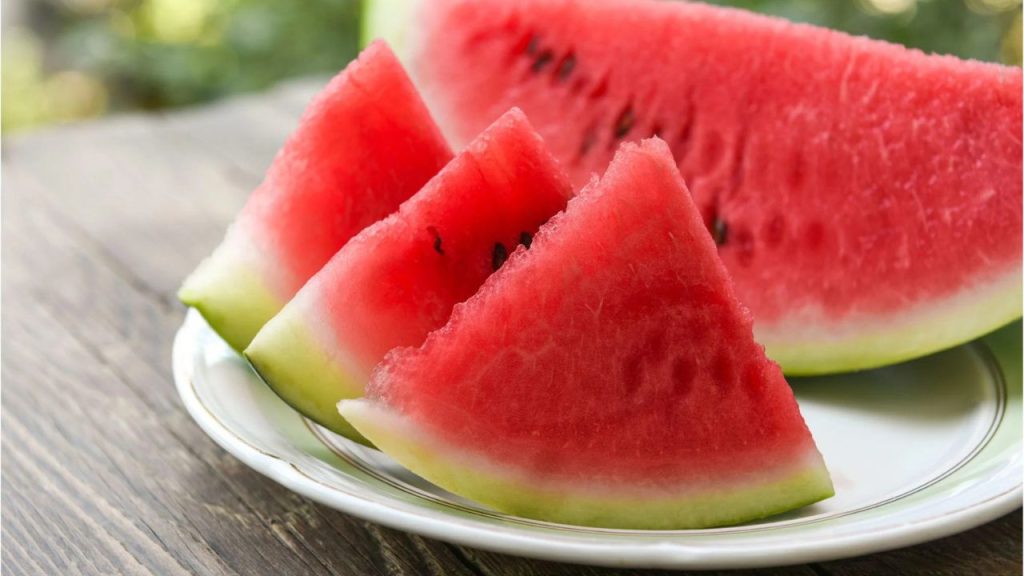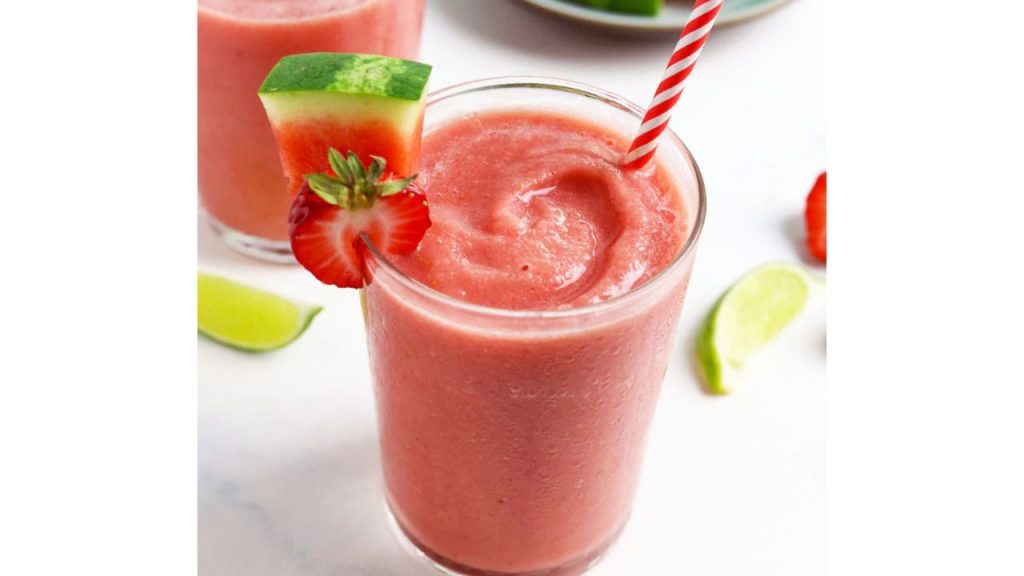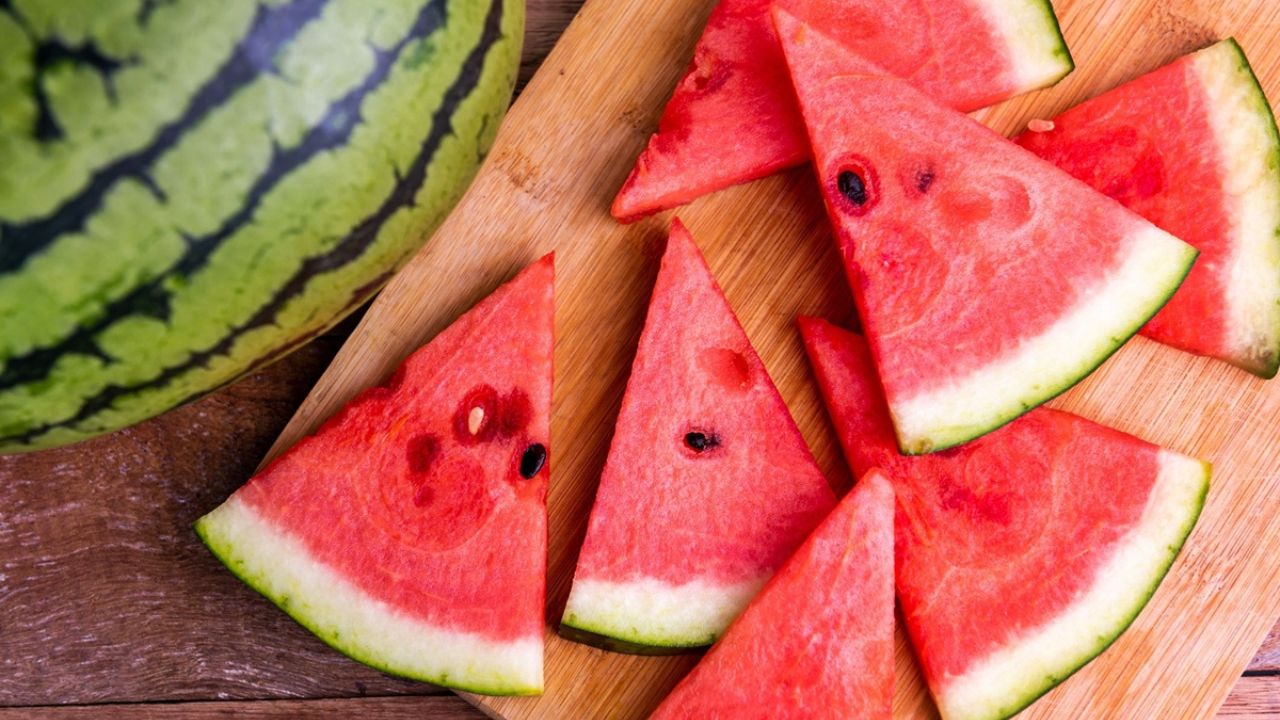12 Health Benefits of Watermelon
Watermelon is one of the most refreshing and beloved fruits, especially during the hot summer months. With its vibrant red flesh, sweet taste, and high-water content, it provides an instant cooling effect. But beyond its delicious flavor and hydrating properties, watermelon offers a variety of health benefits that make it a fantastic addition to any diet. Packed with essential nutrients like vitamins, minerals, and antioxidants, this fruit can support overall health, aid in hydration, improve digestion, boost heart health, and even promote glowing skin.
In this article, we will explore the numerous health benefits of watermelon and why you should incorporate this superfruit into your daily routine.
-
Rich in Nutrients and Low in Calories
Watermelon is a nutrient-dense fruit that provides an abundance of essential vitamins and minerals with very few calories.
A 100-gram serving of watermelon contains:
- Calories: 30
- Water content: Over 90%
- Carbohydrates: 7.6g
- Fiber: 0.4g
- Protein: 0.6g
- Fat: 0.2g
- Vitamin C: 21% of the Recommended Daily Intake (RDI)
- Vitamin A: 18% of the RDI
- Potassium: 5% of the RDI
Magnesium, B vitamins, and antioxidants.
Because it is low in calories and high in essential nutrients, watermelon is an excellent choice for those looking to maintain a healthy and balanced diet.

-
Keeps You Hydrated
One of the biggest benefits of watermelon is its high-water content. Over 90% of the fruit is water, making it a perfect way to stay hydrated, especially during hot weather. Proper hydration is essential for:
- Regulating body temperature
- Supporting digestion
- Maintaining healthy skin
- Enhancing energy levels
- Preventing dehydration-related headaches
Eating watermelon is an enjoyable and natural way to increase your daily water intake while also providing essential electrolytes like potassium and magnesium.
-
Packed with Powerful Antioxidants
Watermelon contains a variety of antioxidants that help protect the body from oxidative stress and free radical damage. Some of the most notable antioxidants in watermelon include:
Lycopene: A powerful antioxidant that gives watermelon its red color. Lycopene has been linked to heart health, reduced cancer risk, and improved skin protection against UV damage.
Vitamin C: A well-known antioxidant that supports immune function, collagen production, and wound healing.
Beta-carotene: Converts into vitamin A in the body and promotes eye health, skin health, and immune function.
Consuming foods rich in antioxidants like watermelon can help prevent chronic diseases and support overall well-being.

-
Supports Heart Health
Heart disease is one of the leading causes of death worldwide, but a diet rich in heart-healthy foods like watermelon can help lower the risk. Watermelon contributes to heart health in several ways:
Lycopene reduces cholesterol and blood pressure: Studies suggest that lycopene may lower bad LDL cholesterol and reduce blood pressure, decreasing the risk of heart disease.
Citrulline improves blood flow: Watermelon is rich in citrulline, an amino acid that helps the body produce nitric oxide. Nitric oxide relaxes blood vessels and improves circulation, leading to better heart health.
Potassium regulates blood pressure: This essential mineral helps balance fluids and relax blood vessel walls, reducing hypertension.
By incorporating watermelon into your diet, you can naturally support a healthier heart and reduce your risk of cardiovascular issues.
-
Aids in Digestion
Watermelon contains fiber and water, both of which are essential for a healthy digestive system. The high-water content helps prevent constipation and promotes regular bowel movements. Meanwhile, the small amount of fiber in watermelon adds bulk to stool and aids in smooth digestion.
Additionally, watermelon contains natural enzymes that support gut health, making it a gentle and effective food for those with sensitive stomachs or digestive issues.
6.Reduce Muscle Soreness
If you experience muscle soreness after exercise, watermelon might be the perfect post-workout snack. The fruit contains citrulline, an amino acid that helps reduce muscle fatigue and improve recovery time. Studies have shown that drinking watermelon juice after a workout can help decrease muscle soreness and improve exercise performance.
For athletes or anyone engaged in physical activity, consuming watermelon can provide a natural way to support muscle recovery and reduce discomfort. Click here

-
Supports Healthy Skin and Hair
Watermelon is an excellent fruit for maintaining healthy, glowing skin and strong hair due to its high content of vitamins A and C:
Vitamin C helps in collagen production: Collagen is essential for maintaining skin elasticity, reducing wrinkles, and promoting wound healing.
Vitamin A keeps skin moisturized: This vitamin plays a key role in skin cell regeneration, preventing dryness and keeping the skin soft.
Lycopene protects against sun damage: As an antioxidant, lycopene can help shield the skin from harmful UV rays and slow down signs of aging.
Eating watermelon regularly can enhance skin hydration, reduce blemishes, and keep hair healthy and strong.
8. Reduce Inflammation
Chronic inflammation is linked to many diseases, including heart disease, cancer, and arthritis. Watermelon contains anti-inflammatory compounds like lycopene and vitamin C, which help combat inflammation and reduce the risk of chronic illness.
Research has shown that lycopene can lower inflammatory markers in the body, making watermelon a natural anti-inflammatory food that supports long-term health.
9. Support for Eye Health
Watermelon is a great source of beta-carotene, which the body converts into vitamin A. Vitamin A is essential for maintaining good vision and reducing the risk of age-related macular degeneration (AMD).
Additionally, the antioxidants in watermelon help protect eye cells from oxidative damage, further supporting long-term eye health.
-
Can Aid in Weight Management
Since watermelon is low in calories but high in water and fiber, it is a great fruit for those trying to manage their weight. The high-water content keeps you full and hydrated, reducing hunger and preventing overeating.
Watermelon is also naturally sweet, making it a great alternative to sugary snacks and desserts. By choosing watermelon over processed sweets, you can satisfy your sweet tooth while keeping your calorie intake low.
11. Reduce Cancer Risk
Some studies suggest that the antioxidants found in watermelon, particularly lycopene, may play a role in reducing the risk of certain cancers, including prostate and breast cancer. Lycopene has been shown to reduce oxidative stress and inflammation, both of which are associated with cancer development.
Although more research is needed, incorporating watermelon into a balanced diet may contribute to cancer prevention and overall better health.
-
Supports Kidney Health
Watermelon has a natural diuretic effect, meaning it helps the body eliminate excess fluids and toxins through urination. This can be beneficial for kidney health, as it aids in flushing out waste and reducing the risk of kidney stones.
Furthermore, watermelon’s high-water content helps keep the kidneys hydrated and functioning properly, promoting overall urinary health. Click here

Conclusion
Watermelon is not only a delicious and refreshing fruit but also a powerhouse of essential nutrients that support overall health. From keeping you hydrated and aiding digestion to supporting heart health, reducing muscle soreness, and promoting glowing skin, the benefits of watermelon are vast.
Whether eaten fresh, blended into smoothies, or enjoyed in salads, incorporating watermelon into your diet is a simple and tasty way to enhance your well-being. So next time you crave a sweet and healthy treat, reach for a slice of watermelon and enjoy all the amazing health benefits it has to offer!


Awesome https://is.gd/tpjNyL
Tnx for your comment
Very good https://is.gd/tpjNyL
Tnx